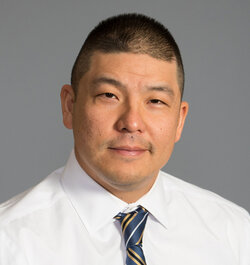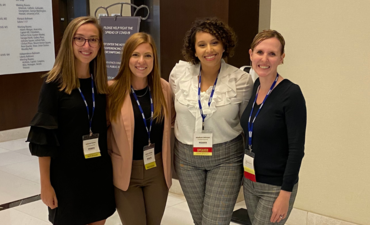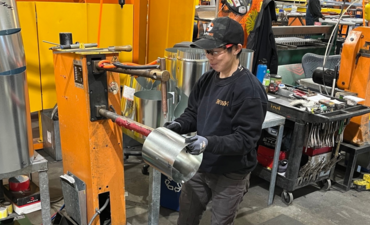
AAPI Heritage Month presents an opportunity to bring awareness to societal issues affecting individuals within the AAPI community.
May is Asian American and Pacific Islander (AAPI) Heritage Month — a celebration of the contributions that generations of Asian Americans and Pacific Islander Americans have made to American history, society, and culture.
An advocate for change
AAPI Heritage Month presents an opportunity to bring awareness to societal issues affecting individuals within the AAPI community. Like other marginalized racial groups, AAPI individuals have experienced racial inequities for many years. However, specifically over the past year, the impact in racial inequities to the AAPI community has been more prominent. As a Korean American, who has witnessed racial inequity and experienced cultural bias, it is imperative that I speak up and advocate for change throughout my personal and professional networks.
Unintentional cultural bias & stereotypes
Recently, I led a discussion with my colleagues about "Hidden in Plain Sight: Asian American Engineers, Part 1" by Society of Women Engineers' (SWE) member Jennifer Morikawa. My goal was to better understand the roadblocks that stem from the different cultures and experiences.
Throughout the discussion, we expounded on the author's experience as an Asian American engineer, specifically diving into how the engineering industry could be more inclusive of the AAPI community. In the discussion, some of our colleagues shared their experiences with microaggressions, which are defined as a comment or action that subtly and often unconsciously or unintentionally expresses a prejudiced attitude toward a member of a marginalized group (such as a racial minority).
Even in the workplace, AAPI individuals may experience unintentional cultural bias and stereotypes that lead to negative connotations. Although these can vary, here are some examples of common biases and stereotypes:
"Are you Chinese?"
Asian cultures are incredibly diverse. Assuming all AAPI individuals are Chinese or labeling them as "Oriental" is a very narrow view of Asian cultures — and a common stereotype. Throughout my career when people reference my race, I have been wrongly identified as "Chinese" or "Oriental." As a Korean American, I feel as if those individuals don't care or don't understand that there are many nationalities represented throughout Asia and the Pacific Islands. Oriental was once a term commonly used regarding people from East Asia and is now considered by many in the AAPI community to be a racial slur. It has since been removed from usage in federal laws, per H.R. 4238 signed by President Barack Obama.
Although a rather broad term, the U.S. Census Bureau defines Asian as "a person having origins in any of the original people of the Far East, for example, Indonesia, Cambodia, China, India, Japan, Korea, Malaysia, the Philippine Islands, Thailand, and Vietnam." Pacific Islander is defined as "a person having origins in any of the original people of Hawaii, Guam, Samoa, or other Pacific Islands."
"You speak English so well."
Assumed fluency of English is a common experience for Asian Americans. Throughout my career, I've given presentations and led discussions with large groups of people and there are times when someone comments on my ability to speak English. After one discussion, I was approached by a meeting attendee that my ability to speak English was "eye-opening." The comment was then followed up by a question of when I emigrated to the United States. As a Korean American that was born and raised in the United States, this left me with feeling that I was viewed as a foreigner.
"You must be good at math."
The broad assumption that all Asians are good at math is a racial stereotype. During a meeting, it was implied that I should have the answers to every math problem. For me, it felt as if those individuals believed the stereotype that Asian Americans are good at math and didn't value my other points that I had made previously in the meeting.
"Open the kimono."
During a meeting when an individual felt there were things being unsaid, they proceeded to state that we needed to "open the kimono." While the term can have multiple meanings, it can be perceived negatively as the phrase alludes to a period of feudal Japan when women were treated as objects and possessions rather than equals. As a Korean American, this has even further connotations and images. During the Japanese occupation of Korea before World War II, Korean women were forced into prostitution for the occupying soldiers. Both my paternal and maternal grandmothers bore scars given to them by their mothers to make them appear less appealing. The devaluation of women during these times has had lasting implications. Not only do the scars serve as a permanent reminder of frightening times, they also serve as a reminder of the salacious negative constraints surrounding the phrase, which is problematic.
It is important to continue having discussions and raising awareness about the impacts microaggressions can have on marginalized groups.
Here are some suggestions on how to advocate on behalf of the AAPI community and team members.
- Become aware of what stereotypes and biases exist around Asian American and Pacific Islanders in our society and culture. This can be done through a simple search on the internet.
- Be aware of what we say to each other. Taking a moment to evaluate what we want to say or even taking an additional step to consider how someone may receive comment can save embarrassment and avoid hurting others.
- Spend time getting to know the AAPI team members within your organization. Understand that the AAPI community is diverse and that this diversity is something that we can use to make our organizations and industry even better.
Project Executive
As Project Executive, John Rhee leads our project teams in all phases of construction projects across various markets, managing both self-perform and subcontracted delivery methods. As an accomplished project manager with over 18 years of construction experience and an Army veteran, he draws on his industry expertise and service overseas in support of Operation Iraqi Freedom to guide and support our teams.




